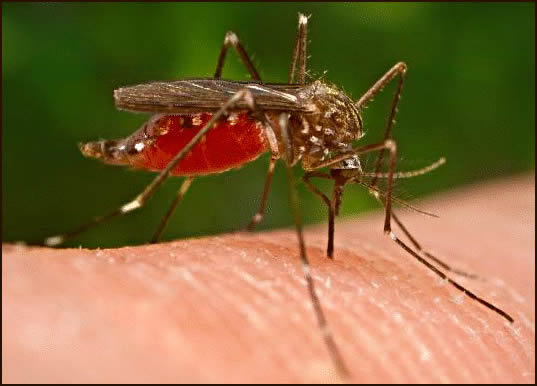News
Nigeria Urged to Intensify Malaria Eradication Efforts Following Cape Verde’s Milestone

EKO HOT BLOG reports In a significant stride for healthcare in Africa, Cape Verde has achieved a historic milestone by being declared malaria-free for the first time in 50 years by the World Health Organization (WHO). This accomplishment serves as a challenge and a call to action for Nigeria to intensify its efforts in eradicating malaria, a prevalent health concern in the country.
Cape Verde, a tiny island country off the coast of West Africa, reached this milestone through years of focused efforts. The nation has not reported a single case of local transmission of malaria in the past three years, showcasing the effectiveness of concentrated resources and strengthened health systems. The key strategies employed by Cape Verde included early detection through surveillance officers and increased access to the diagnosis and treatment of all malaria cases.
EDITOR’S PICK
-
JUST IN: Fire Razes 10-Storey Mandilas Building On Lagos Island
-
Eko Hot Blog Is Back Online And Stronger!
-
mall student will undertake Drug Test Before Admission – UniAbuja Vc Declares
Cape Verde’s Health Minister, Filomena Gonçalves, attributed this success to the hard work and dedication of health professionals, collaborators, communities, and international partners. She emphasized that the achievement is a testament to what can be accomplished through collective commitment to improving public health.
The island nation of Mauritius was the first in sub-Saharan Africa to be declared malaria-free in 1973, followed by North African countries like Morocco, Tunisia, and Algeria in subsequent years. However, the reality for many African countries remains grim, with 580,000 people in Africa succumbing to the disease in 2022, accounting for 95% of global malaria fatalities.
Malaria, transmitted through mosquito bites, can manifest as mild or life-threatening symptoms, ranging from fever and chills to fatigue, confusion, seizures, and difficulty in breathing. Vulnerable populations, including infants, children under five years, pregnant women, and travelers, are at risk of this complex parasite, making it a leading cause of infant and maternal mortality in Nigeria.
Four African countries, including Nigeria, the Democratic Republic of the Congo, Uganda, and Mozambique, account for over half of all malaria deaths worldwide, as per the WHO. The Institute of Health Metrics and Evaluation data underscores the highest malaria death rates in Africa, with Nigeria facing significant challenges in eradicating the disease.
Constraints such as limited healthcare access, underfunding of the health sector, poor living conditions, rising medication costs, insufficient infrastructure, and lack of oversight have hampered malaria eradication programs in Nigeria. In an additional setback, Nigeria was excluded from receiving 18 million doses of a malaria vaccine from 2023 to 2025, further complicating efforts to combat the upsurge in cases.
FURTHER READING
-
Fraudulent Academic Records:
‘Bring Evidence In 30 Days’ – Wole Soynika Dares Accusers -
IPOB: Troops Arrest 2 ESN
Members, Recover Rocket Propelled Launcher In Imo -
mall student will undertake Drug Test Before Admission – UniAbuja Vc Declares
There is a pressing need for the Nigerian government and stakeholders to develop a comprehensive blueprint to combat and eliminate malaria. Reviving scientific research in the country’s research institutes for effective diagnosis and treatment is essential. Prioritizing primary healthcare, implementing robust surveillance methods, and raising awareness among citizens about malaria prevention are crucial steps to address the challenges faced by Nigeria in the fight against malaria.
Click To Watch Our Video Of The Week
Advertise or Publish a Story on EkoHot Blog:
Kindly contact us at [email protected]. Breaking stories should be sent to the above email and substantiated with pictorial evidence.
Citizen journalists will receive a token as data incentive.
Call or Whatsapp: 0803 561 7233, 0703 414 5611






